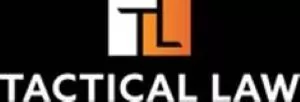Software companies who use aggressive software audits to increase revenues often threaten their customers with lawsuits for copyright infringement and breach of contract, as leverage in order to try to drive sales of additional software products. In fact, we have seen software companies like Quest Software file lawsuits against their customers for copyright infringement arising out of an audit, when in reality their only claim is one for breach of contract. How do you know if the licensor of your software can sue you for copyright infringement for your alleged over-deployment of software? It basically comes down to whether the license provides a remedy for over-deployment such as paying additional fees should an audit uncover excess use. If it does, the clause is viewed by courts as a covenant and not a condition, the breach of which gives rise to only a contract claim. In California, as in other states, conditions are not favored and a court will construe a clause as a covenant and not a condition unless the clear and unambiguous language of the contract requires it to do otherwise.
When a copyright owner grants a nonexclusive license to use its copyrighted material, it generally waives its right to sue the licensee for copyright infringement and can sue only for breach of contract. A licensor may sue for copyright infringement only when the licensee acts outside the scope of the license. Courts refer to contractual terms that limit a license's scope as "conditions," the breach of which constitute copyright infringement. MDY Indust. LLC., v. Blizzard Entm’t Inc., 629 F.3d 928, 939 (9thCir. 2010). Courts refer to all other license terms as "covenants," the breach of which are actionable only under contract law. Id. See, e.g., BroadVision, Inc. v. Medical Protective Co., 2010 WL 5158129 (S.D.N.Y. Nov. 23, 2010) (applying California law to find that the license provisions permitting excess use of software in exchange for additional fees are covenants, not conditions.) The distinction between a “condition” and a “covenant” is determined under the law of the state that governs the license agreements. Most Oracle licenses in the United States and older Quest licenses are governed by California law. Under California law a license provision that permits additional use or over-deployment, but requires that a licensee pay for that additional use, is a covenant rather than a condition. See, e.g., Actuate Corp. v. Fid. Nat'l Info. Servs., Inc., No. C 14-02274 RS, 2014 WL 4182093, at *3 (N.D. Cal. Aug. 22, 2014) (dismissing copyright infringement claim because alleged additional use violated covenant rather than condition).
A case involving Quest Software is instructive. In Quest Software, Inc. v. DirecTV Operations, LLC , 2011 WL 4500922 (C.D. Cal. 2011) the district court specifically found that a clause, which provided a “true-up” mechanism in the event of excess use, i.e. over-deployment, constituted a covenant and not a condition. In support of his ruling granting summary judgment to the licensee and dismissing the copyright claim, Judge Guilford reasoned that “the over-deployment and true-up provisions in the License Agreement permit [DirectTV] to use Foglight on additional CPUs for an extra fee. These provisions are properly described as covenants because they do not concern the scope of the license, only the number of CPUs the license covers.” In other words, the contract specifically contemplates that excess use may occur, and in that situation the remedy is payment for the additional licenses.
Given the law, why do licensors often decide to include a copyright claim in their complaint? Several potential reasons come to mind. First, inclusion of the federal question allows the licensor to file its lawsuit in federal court. Otherwise a licensor would be limited to filing for breach of contract in state court unless diversity existed or it had another federal claim. Second, the copyright owner can recover actual damages such as its lost profits, or even the profits of the infringer on a copyright claim, making it more attractive than regular contract damages. Third, for licensors where actual damages are hard to prove, statutory damages are available. Fourth, damages may be enhanced if a court finds willful infringement. Finally, reasonable attorneys’ fees and costs may also be awarded to the successful licensor if they prevail on their copyright claim. This is helpful in situations where the license agreement does not have an attorneys' fees provision.
If your license has not been terminated and contains a clause that provides for a “true up” payment in the event of an over-deployment, the licensor’s sole remedy is likely a claim for breach of contract and not copyright infringement, at least under California law. Push back against licensor assertions to the contrary.
The content of this article is intended to provide a general guide to the subject matter. Specialist advice should be sought about your specific circumstances.

